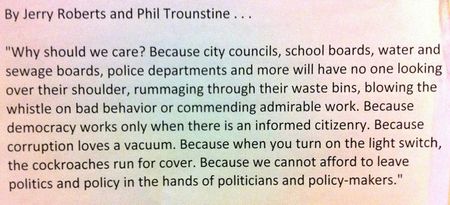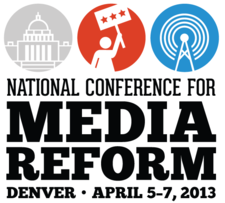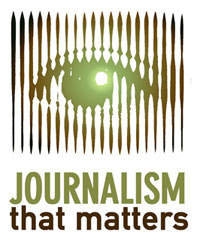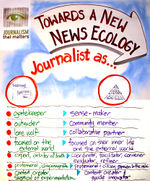Difference between revisions of "Tnj-group-block1"
(Created page with "http://newshare.com/jtm-denver/jtm-denver-banner-small-small.jpg 300px|thumb|right|[http://www.journalismthatmatters.org LEARN ABOUT JTM] [[Image:Jtm-de...") |
(No difference)
|
Revision as of 17:20, 22 February 2013


Contents
- 1 EARLY-BIRD REGISTRATION IS OPEN. / CONFERENCE HOME PAGE / WIKI PAGE DIRECTORY / VIEW/PRINT FLYER / READ INVITATION /WHO'S COMING?
- 2 "Journalism is Dead; Long Live Journalism”
- 3 REGISTER NOW -- EARLY BIRD: $145 until FRIDAY, Feb. 22
- 4 COMBO RATE OF $275.00 WHEN ALSO REGISTERING FOR FREE PRESS/NCMR.
EARLY-BIRD REGISTRATION IS OPEN. / CONFERENCE HOME PAGE / WIKI PAGE DIRECTORY / VIEW/PRINT FLYER / READ INVITATION /WHO'S COMING?
=SPECIAL REGISTRATION FOR MEMBERS OF ROCKY MOUNTAIN PBS
Be among the first 10 members of Rocky Mountain PBS to register for "Journalism is Dead; Long Live Journalism," WEd./Thur. May 3-4 at the University of Denver and obtain the rate of $95 for both days -- a 50% discount. Registration includes dinner on Wednesday and continental breakfast and lunch on Thursday.
When you register, the rate will show if it is still available
===Go to the REGISTRATION INFORMATION PAGE for details (scroll to the bottom to see the rate).
Go to the [http://www.thenewjournalism.org CONFERENCE HOME PAGE for program details.==
"Journalism is Dead; Long Live Journalism”
From mourning to building –- Rallying for the future of news and communities
A two-day gathering for journalists, librarians, technologists, educators, students, and engaged citizens
April 3-4, 2013 / Estlow Center / Univ. of Denver
http://thenewjournalism.org
"Journalism is Dead; Long Live Journalism,” will be a fast-paced, results-focused summit from 10 a.m. on Wed., April 3 through 5:30 p.m. on Thurs., April 4, 2013 in Denver. Conducted in JTM’s signature "Open Space" style, the event starts by acknowledging that journalism as we’ve known it may not be sustainable, but that a fast-emerging new ecosystem presents opportunities to renew and extend journalism’s values, principles and purposes.
The body of journalism as we’ve known it is dead. But its values, principles and purposes -- a respect for truth, fierce independence -- are as cherished, vital and needed as ever. The news was paid for by mass-market advertising – print and broadcast – and through print subscriptions. Those supports are shrinking – fast. Can philanthropy and donations alone pick up the slack? What core elements of the news as we’ve known it are really critical to sustaining and nurturing communities and participatory democracy?
At JTM Denver, we’ll work together to answer those questions. The answers may not be comprehensive, or best, or even fully satisfactory. They'll be embodied in stories from the front lines about research, experiments or projects already underway. They may describe new forms of collaboration. One thing is certain: Journalists, librarians, media educators, technologists, students and citizens know the time for answers is now. The status quo won’t hold.
"I just wanted to change the world and look out for the little guy," former Wall Street Journal deputy managing editor and New York Times Public Editor Barney Calame told Missouri School of Journalism students in September about why he became a reporter. "I really believe that it's a cause."
Will you help the cause?
REGISTER NOW -- EARLY BIRD: $145 until FRIDAY, Feb. 22
COMBO RATE OF $275.00 WHEN ALSO REGISTERING FOR FREE PRESS/NCMR.
Key themes
During the two days we'll share the projects you're working on that sustain the values, principles and purposes of journalism. And we'll re-new and forge new connections with colleagues in technology, librarianship, media education, and community information gathering. We'll have a chance to make connections and start sharing ideas before we get together. And we'll continue our collaborations long after we've left Denver.
Here are some things we'll consider, on site in Denver -- and in pre-convening materials shared and created by participants:

- Why journalism as we knew it is dead
- What key elements comprise the new journalism ecosystem -- in Colorado and elsewhere?
- How do these elements foster the values, principles and purposes of “old” journalism?
- What has become of "the story"? How do we tell stories in the new ecosystem?
- How are youth and youth adults perceiving, and creating, the news?
- What’s the role of news in sustaining communities?
- What’s do we mean by "a new ethic of public engagement?"
- How does ownership matter, and play out?
- Big data -- Are personalization, and user-centric databases journalism's new support system?
- What is "slow media" and why could it important?
- How might atomized, deinstitutionalized news still speak truth to power?
- What might "solutions journalism"look light and how can we support it?
- Could climate change now be the most important 'frame' for journalism?
- Are network neutrality and community broadband the "free press" issues of our century?
Consensus on five fresh ideas – will one of them be yours?
At JTM-Denver, we’ll not only spotlight what’s working -- we'll seek to nurture at least five new ideas to brighten the future of news and communities.
So what’s your idea?
Bring it to JTM-Denver. Come tell us: Where do you see journalism that matters emerging – off press and off broadcast -- in new forms and partnerships? How does it involve citizens, students, librarians, reporters, editors and technologists working together to foster truth, transparency, civic, engagement and participation?

Our convening partners
“Journalism is Dead; Long Live Journalism” is presented by Journalism That Matters (JTM), a decade-old "do-tank" whose more than 1,600 alumni of a dozen regional and national convenings are focused on connecting journalists with technologists, librarians, educators, public-policy leaders, diverse communities and engaged citizens.
Our convening partners for JTM-Denver include the Estlow Center at the University of Denver, the Rocky Mountain Investigative News Network (I-News Network), the Donald W. Reynolds Journalism Institute, at the Missouri School of Journalism, FreePress.net, the University of Colorado’s Digital Media Test Kitchen and its Center for Environmental Journalism.
JTM-Denver will include the annual Estlow Lecture, a keynote address on Wed., April 3, at 7:00 p.m. We convene immediately before the fifth National Conference for Media Reform, also in Denver, a project of FreePress.net. Through a partnership with FreePress.net, participants in JTM-Denver may register once for both events at a combination rate. To do so, register for JTM-Denver (CLICK HERE), and select the Free Press Joint Option.
The new ecosystem -– a snapshot
Throughout most of the 20th century, the printed story served communities well at a time when access to information was limited. Large newsrooms capable of observing, distilling, writing and telling the news from chicken dinners to meetings to major world events. As advertising has decoupled from the news, story-form journalism is starting to break down. There are fewer people to write the stories, fewer eyes and ears in the community on news-organization payrolls. At the same time, network technology allows the public to create and comment on the news directly in forms radically different from the story -- 140-word "tweets" Facebook posts, YouTube videos or Pinterest "pins".
Institutions who were formerly sources to news rooms now may go direct via corporation, retail, municipal, public-advocacy and individual websites. They are deploying the new art of content marketing -- "creating and distributing relevant and valuable content to attract, acquire and engage a defined and understood target audience -- with the objective of driving profitable customer action."
In places like Seattle, Denver, Ann Arbor, Mich., and New Orleans, large communities have lost a major daily news voice. This is not just a big-city phenomenon. Waves of consolidations have left smaller communities without their own weekly news voice, or a daily replaced by a weekly. Community radio stations have gone dark. Yet hundreds of local online news sites have sprung up; cable public-access centers are think more like news organizations; and community foundations are beginning to see news reporting as an important part of a healthy community.
Most of this change in what we began in 2006 to call the "news ecosystem" has occurred in the last decade, as Internet information technologies matured. The pace of change has been fast. Many cities, towns and interest groups affected have not had the time or inclination for collective reflection about the impact on participatory democracy and community.
Seven focus areas
To illuminate stories and definie our five transformative ideas, we’ll feature practitioners in at least seven areas:
- ROCKIES ECOSYSTEM -- A special day-long workshop: “Life after death: Colorado’s news ecosystem three years after the Rocky Mountain News closure.” From 10 a.m.-3 p.m., Wed., April 3. Charting the ways journalism that matters is emerging from the both the sustaining portions of legacy media and the emerging innovation of the new news ecosystem. Curator: The Rocky Mountain Investigative News Network. (Breakout: 10 a.m.-3 p.m. Wed., April 3)
- LIBRARIANS AND JOURNALISTS -- The growing potential for collaboration between librarians and journalists, who share a passion for facts, openness and public literacy at a time when both of their worlds are relying less on buildings, books and presses and more on public engagement -- online and in new venues -- "third spaces."
- YOUTH AND MEDIA -- The new forms and methods that youth and young adults are using to create and engage with news and civic media, whether games, social networks or video. Example: The Denver South High School experiment (special breakout: 3:30 p.m.-4:30 p.m., Wed., April 3)
- OWNERSHIP AND COMMUNITIES – Throughout our economic system, experts are examining new forms of business ownership to see if they might foster a deeper – sometimes overlapping – connection between the interests of owners, users and customers. We’ll look at experiments testing the idea of co-operatively owns news organizations, and efforts to expand coverage of ethnic and underserved communities. (Curator: Tom Stites)
- SUSTAINABILITY AND REVENUE -- Through the 20th century, mass markets and advertising were the lifeblood of traditional journalism. Mass markets are splintered by the efficiency of topical and social networks and advertising is moving to one-to-one personalization. Our participants will includes experts in the trenches discovering new methods for sustaining new forms of of journalism -- from cross-platform, user-centric database, microaccounting and subscriptions . . . to crowdfunding, philanthropy and targeted advertising. Curator: Reynolds Journalism Institute.
- CLIMATE CHANGE REPORTING -- Beyond objectivity, beyond independence, all journalists share a common goal of species survival. With the debate about the reality of climate change over, JTM is partnering with FreePress to make climate-change reporting a key focus of both our gathering at the University of Denver as well as the larger National Conference for Media Reform. Our consideration will be guided by experts from the University of Colorado-Boulder, and elsewhere.
- NEWSTOOLS 2012 -- For decades, the vessels for journalism were unchanged -- presses and broadcast transmitters. Forms are now a free-for-all -- blogs, mobile, social networks, tablets, "webinars," Skype, Google Hangouts, Vimeo, YouTube, you name it. The new journalism is embedded in new technologies -- including wireless and community broadband. Four years after a ground-breaking gathering at Yahoo, JTM updates news and technology. Bring your cool tool.
Venue, transit
JTM-Denver, "Journalism is Dead; Long Live Journalism," will take place in Morgridge Hall at the University of Denver, (1999 E. Evans Ave. Denver, CO 80208-1700) (MAP) on Wednesday and Thursday, April 3-4, 2013. It is scheduled as a "pre-conference" gathering immediately before the National Conference for Media Reform. Participants can cross-register for BOTH events at a discounted rate, and JTM participants are eligible to request the "FreePress" rate at the Sheraton Denver Downtown Hotel for any days from April 3-7, 2012. For details, begin registration now. Morgridge Hall is a three-block walk from the Denver metropolitan light rail stop (red, purple or blue lines), which run directly downtown to the convention center, three blocks from the Sheraton Hotel. The ride is about 17 minutes; cash fare is $2.25 and trains run approximately every half hour until at least midnight (every 15 minutes during the day).
How you can help
- Think about how you can contribute examples, ideas and expertise in our focus areas
- When you register, answer our question about the expertise and ideas you'll be bringing.
- Email us now: jtm@journalismthatmatters.org to be added to our mailing list for summit updates.




